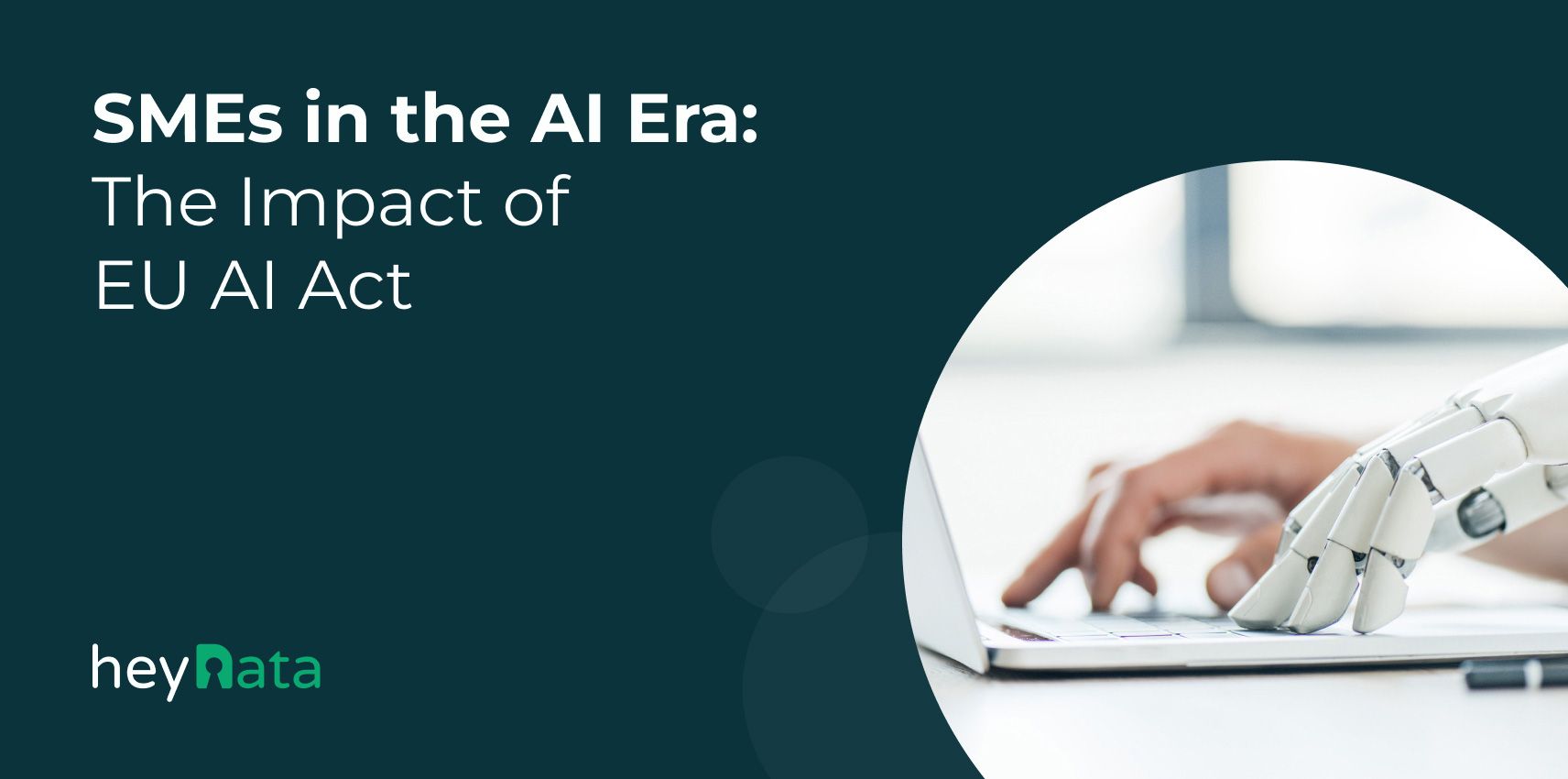
SMEs in the AI Era: The Impact of EU AI Act

The EU AI Act, proposed by the European Commission in April 2021, stands as the world's first comprehensive legislation on artificial intelligence, marking a significant step towards regulating this rapidly advancing technology. Following extensive negotiations and compromises, a provisional agreement between the European Parliament and the Council was reached in December 2023, anticipating the legislation's phased implementation starting in 2026. Amidst these regulatory shifts, small and medium-sized enterprises (SMEs) offering AI services find themselves navigating a landscape fraught with legal uncertainties.
Following the adoption, the EU AI Act sets a two-year timeline for most obligations to become binding, providing member states the necessary period to integrate the new rules domestically. The ban on prohibited AI systems becomes binding in six months, and obligations on foundation models, including transparency reports and risk assessments, are enforced after 12 months. Moreover, non-compliance with the law may incur penalties of up to 7% of global turnover or 35 million euros.
Table of Contents:
AI Act Key Objectives
1. Protecting Fundamental Rights and Values:
The EU AI Act strongly emphasizes safeguarding fundamental rights such as fairness, non-discrimination, privacy, and safety.
2. Boosting Innovation and Investment:
By categorizing AI systems into different risk levels, the legislation aims to balance protecting individuals and fostering innovation.
3. Setting a Global Standard:
The EU's approach to regulating AI models based on their potential risk sets a precedent for global AI governance. The act positions the EU as a leader in ethical and human-centric AI, encouraging other regions to adopt similar standards.
Related topic: OpenAI's GDPR investigations and the growing importance of Data Privacy in the AI era.
Tailored Regulations for Different Risk Levels
The AI Act introduces a comprehensive regulatory framework that classifies AI systems into different risk categories, each subject to specific rules and requirements. It establishes three primary risk levels:
- Unacceptable risk: Applications falling under this category, such as government-operated social scoring systems, are banned due to their potential for misuse and infringement on individual rights.
- High risk: AI systems used in sensitive areas like recruitment, credit scoring, and law enforcement are deemed high risk.
- Limited risk: Directly interacting with people and can give the impression that they are human beings.
- Low minimal risk: AI applications categorized as low or minimal risk, like spam filters or AI-powered games, are not subject to specific regulations, allowing for a more flexible approach. Learn more about risk levels here.
The Act includes a detailed list of prohibited AI practices, addressing concerns about misuse, including subliminal techniques, exploitative practices, and bans on certain applications like real-time remote biometric identification for general law enforcement purposes.
Related topic: Safeguarding Data Protection and Compliance when Utilizing AI
Impact on SMEs Offering AI Services
The AI Act aims to regulate artificial intelligence and set boundaries for its development and use in the European Union. Understanding these impacts is essential for SMEs to navigate the evolving landscape of AI development and use.
Positive Consequences and Opportunities
Competitive Advantage Through Compliance: SMEs adhering to regulations may gain a competitive advantage by marketing ethical AI practices, attracting clients prioritizing responsible AI use and data protection.
Market Credibility and Increased Trust: Demonstrating compliance with the AI Act can enhance credibility, attracting partnerships, collaborations, investment opportunities and fostering trust among clients regarding data safety and ethical AI deployment.
Long-Term Stability: The regulatory framework aims to create a stable environment for AI development, providing SMEs with a clear legal framework for long-term planning and business stability.
Alignment with Global Standards: Compliance with the EU AI Act may align SMEs with emerging global standards for AI regulation, facilitating expansion into international markets with similar regulations.
Challenges and Considerations
Impact on Competition: Some SMEs express concerns that reporting duties and transparency obligations might put EU companies at a competitive disadvantage, potentially causing delays in regulatory approval.
Potential Delay: There's a risk of delays in implementing the AI Act, creating legal uncertainty around AI for SMEs and impacting their ability to navigate and comply with new regulations.
Concerns About Compliance Costs: Organizations fear that proposed self-regulation could shift compliance responsibility to SMEs, resulting in high compliance costs and potential hindrances to AI adoption. Neglecting this could lead to higher costs later due to errors or legal violations. Therefore, prioritizing compliance initially mitigates future risks and expenses.
While challenges exist, the positive impact of the EU AI Act on SMEs can be substantial if effectively implemented, fostering responsible AI practices and positioning these businesses for success in a rapidly evolving technological landscape.
Related topic: Proactively manage third-party risk: Introducing heyData’s Vendor Risk Management Tool
Conclusion
The EU AI Act represents a groundbreaking effort to regulate artificial intelligence comprehensively, with a focus on protecting fundamental rights, fostering innovation, and categorizing AI systems based on potential risks. As the legislation progresses toward implementation, it sets a global standard for ethical and human-centric AI governance.
The impact of the EU AI Act on SMEs will depend on how effectively it is implemented, balancing the goals of regulation with the need to encourage innovation. Overall, the act presents an opportunity for SMEs to distinguish themselves through responsible AI practices, positioning them for success in an evolving technological landscape that prioritizes ethical considerations and global standards.
With heyData, you can navigate AI adoption confidently, equipped with cutting-edge tools and expert legal support. Subscribe now to join the waiting list for announcements of the official heyData AI Solution AI Comply release.


